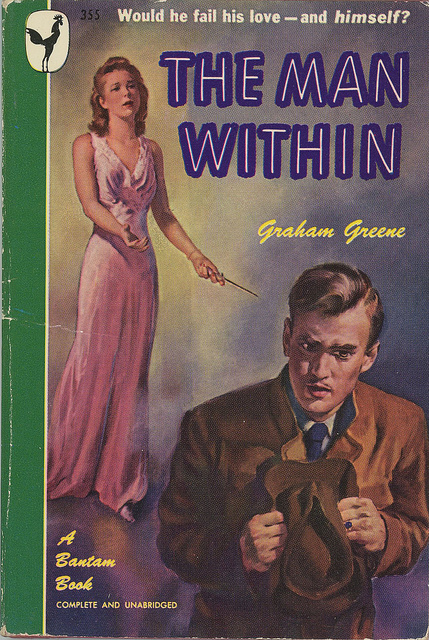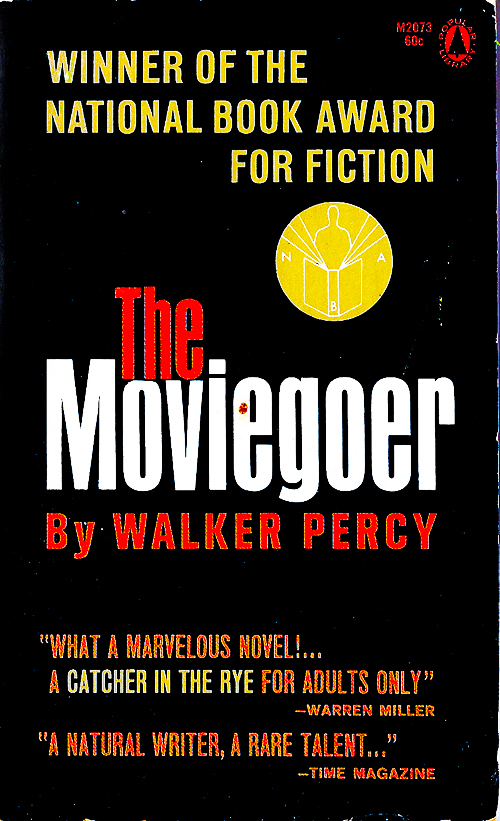Steve Sanders is a PhD candidate in literature and creative writing. He hails from Norman, Oklahoma and received his MFA from Boston University. In each location, he learned to live and mostly die by the Sooners and Red Sox.
First Novel, Best Novel?
Steve Sanders
Feb 26, 2013
Cormac McCarthy's first novel
The Orchard Keeper, released in 1965, is an often fascinating work, an evocation of a Depression-era Tennessee landscape that is as mythic and haunted as the sea in
Moby-Dick. It also borders on unreadable. Graham Greene's debut,
The Man Within, goes well over that border with turgid prose about a protagonist who is fundamentally dull, within and without. As for Haruki Murakami's first,
Hear the Wind Sing, its absence from the list of titles "Also by" in current editions of his other works speaks for itself.
This semester, I've real all three of these works in tandem with a later masterpiece by each author (
The Road, The Heart of the Matter, and
Hard-Boiled Wonderland and
The End of the World). Certainly the results aren't entirely surprising. Writers, as opposed to, say, mathematicians, are generally speaking assumed to be more skilled in their forties than their twenties. We wouldn't expect that Greene at twenty-two would have the skill and, more importantly, the emotional maturity that he brought to his later "entertainments." The myopic hero of
The Man Within is the product of a myopic (though prodigiously talented) young writer who had yet to learn to balance his theological preoccupations with a deftly plotted narrative.
As a writer working on my own first novel, I can't decide whether or not this should be encouraging. If even Graham Greene once sucked, that gives me hope that we're all capable of
Our Man in Havana or
The Quiet American. But writing a novel, even a bad one, is damn hard and if even Graham Greene couldn't get it right the first time what are the odds for the rest of us? Of course, it's a false dichotomy.
Sometimes a first novel only looks weak by that writer's own later standards. Tim O'Brien's
Northern Lights is an often enthralling tale of two brothers trapped in the Minnesota wilderness during a snowstorm. It's only with the hindsight of
The Things They Carried and
In the Lake of the Woods that makes
Northern Lights seem about as consequential as an Encyclopedia Brown mystery.
Early success just as often creates a standard which an author can never live up to. Consider the cases of Richard Yates and Walker Percy who each debuted the same year (1961) with a work--
Revolutionary Road for Yates,
The Moviegoer for Percy--than could make a credible claim to being the best novel of the 1960s. It is both tragic and somewhat predictable that neither man ever recaptured the greatness of those debuts. They were each undone by a writer's worst enemies: alcohol (Yates) and Jesus (Percy). Still, books as good as
Revolutionary Road and
The Moviegoer are worth an entire career.
The question is also perhaps less one of age than self-awareness. At twenty-three, the preternaturally gifted Zadie Smith produced 2000's
White Teeth. In a work that spans the entire 20th century in the lives of three London families, Smith anticipated the following decade's defining cultural conflicts--identity politics, religious violence, East/West assimilation, the ethical limits of science--and did so in hilarious fashion.
At twenty-eight, Jonathan Franzen wrote
The 27th City, the novel Tom Wolfe wishes he had written. Set in 1980s St. Louis, the books weaves a high modern tale of conspiracy with the scope and wit of Dickens.
Donna Tartt produced
The Secret History at twenty-seven, reimagining the detective story as a kind of whydunit confessional about a group of undergraduate classics scholars at an elite Vermont college forced into the commission and cover up of a horrific act of violence against a classmate. The plot, though, is less the selling point than the perfectly realized campus setting which allows Tartt to skewer academic pretension and WASP entitlement in equal measure while creating a world that's as magical and surreal as Hogwarts or Narnia.
For first-time novelists, the most inspiring recent debut may be 2012's
Billy Lynn's Long Halftime Walk by Ben Fountain. A
New Yorker piece by
Malcolm Gladwell introduced Fountain to the world in 2008; he published his first story in his early forties, his first collection at 48, and
Billy Lynn last year at the age of 52. Patterned on a deceptively simple day-in-the-life structure, Fountain's novel follows an Iraq War platoon made heroes by Fox News. Before, during, and after a halftime celebration at a Thanksgiving Day game in Texas Stadium, Fountain deftly mixes reality (Beyoncé and a thinly-disguised Jerry Jones play prominent parts) and fiction as he paints a portrait of an America hell bent on consumption for its own sake. It's a potent reminder for a writer of any age that the time spent honing your craft (over twenty-five years in Fountain's case) is its own reward.




Comments (0)
Add a Comment